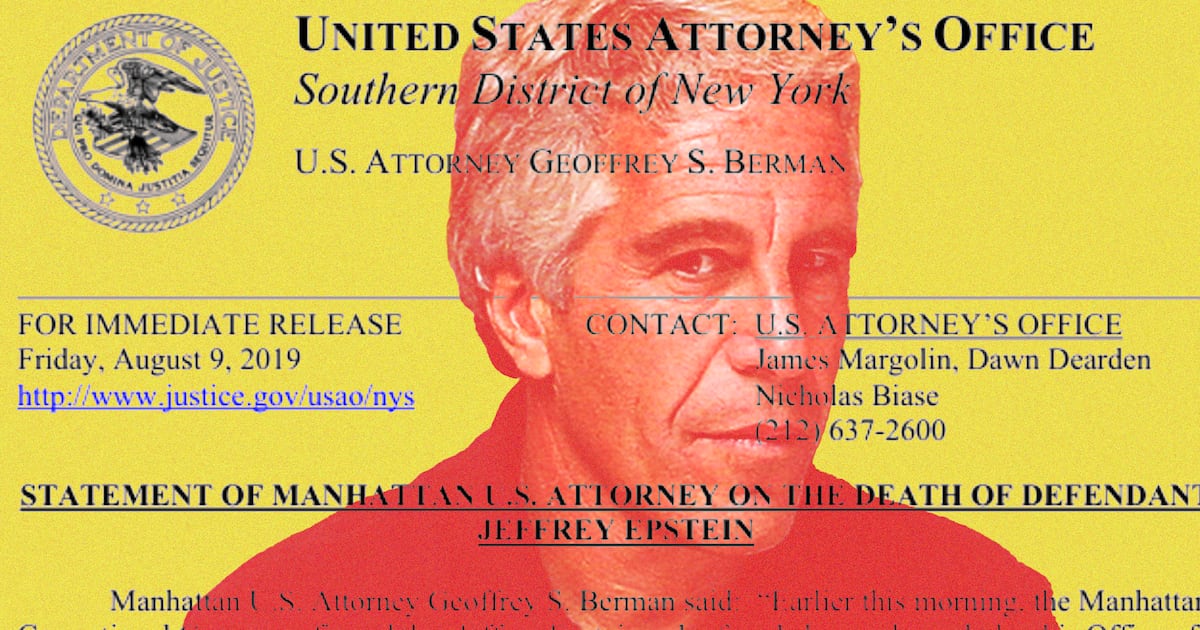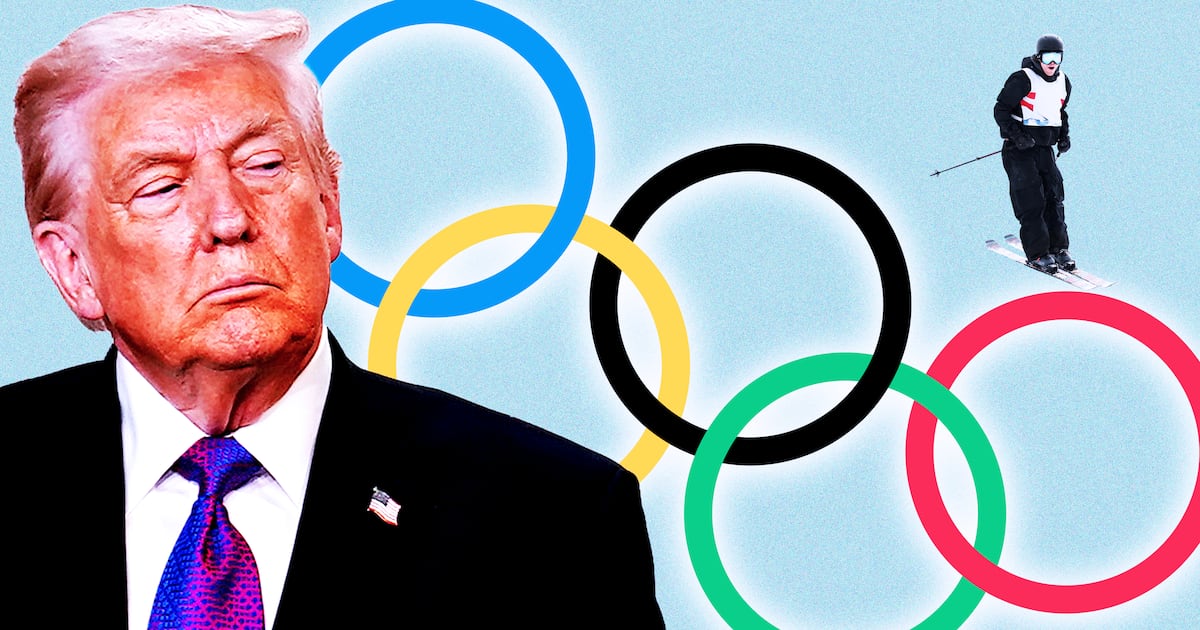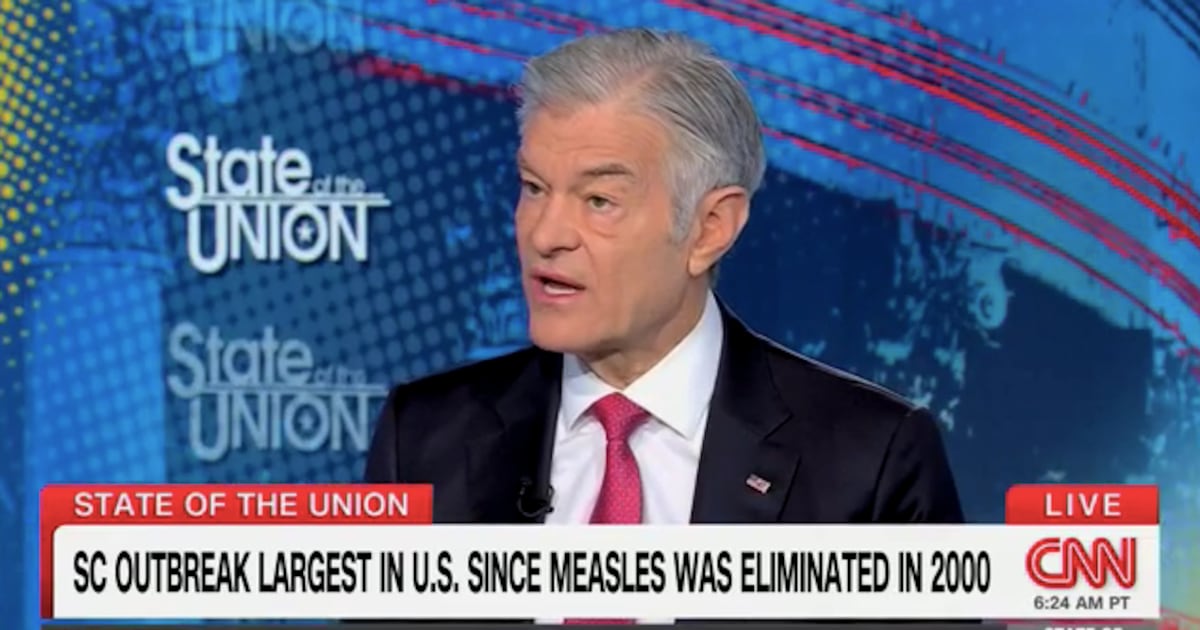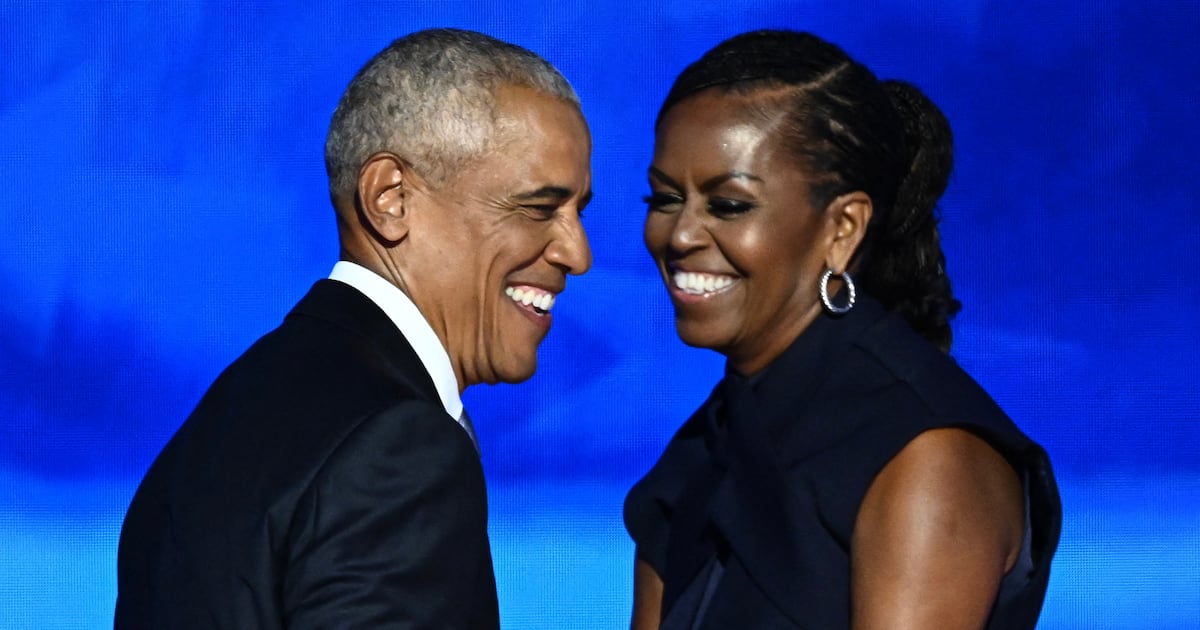When Attorney General Jeff Sessions announced he would recuse himself from the Russia probe on March 2 at 4 p.m., he seemed to have been in a bit of a hurry.
It wasn’t that the recusal came out of the blue. According to his schedule—obtained by the watchdog group Citizens for Responsibility and Ethics in Washington (CREW) and provided exclusively to The Daily Beast—he had a “discussion on recusal issues” scheduled for 5:15 p.m. with his senior staff.
But the evening before that, The Washington Post reported that Sessions had an undisclosed meeting with the Russian ambassador in his Senate office—even though he told the Senate Judiciary Committee that he had no meetings with Russians during the campaign.
Sessions’ schedule hints at the backstory behind Sessions’ recusal—an enormously consequential decision that turned the president against the attorney general and set the stage for Bob Mueller to take over the Russia probe.
The Post’s story, which ran the evening of March 1, generated immediate calls for Sessions’ recusal from the Russia probe, and some Democratic senators also called on him to resign. If things had gone according to Sessions’ schedule, he would have met with senior staff from 5:15 to 6:15 p.m. to make the final decision about his recusal. Then he would have had two hours to kill before leaving for Fox News to appear on Tucker Carlson’s show. No press conferences were on the agenda.
But after the Post’s story dropped, things changed. At about 3 p.m., the Justice Department announced there would be a press conference in an hour. And at that press conference, at 4 p.m., Sessions announced he would recuse himself from the Russia probe. He even mentioned he’d been scheduled to have a meeting that day about recusal issues, though he didn’t say whether the meeting had taken place.
Ann Weismann, chief FOIA counsel for CREW, told The Daily Beast that the schedule strongly suggests the attorney general announced his recusal earlier than he had initially planned because of the firestorm that followed the Post story.
“My belief is that he may have panicked when that Washington Post article came out and made a decision more quickly than he had intended to,” she said.
The fact that Sessions made the announcement before he was scheduled to have his meeting on the recusal means his plans changed, Weismann said—and she said the most likely reason they would have changed is the publication of the Post’s story.
A Justice Department official told The Daily Beast that Sessions’ schedule was shuffled around that day and that he met with his advisers before the press conference, where they finalized the recusal. The official said his schedule frequently changes.
While Sessions’ recusal gave him a reprieve from government watchdogs’ criticism, it won him a new foe: President Donald Trump. Trump told The New York Times last week that he wouldn’t have named Sessions attorney general if he had known he was going to recuse himself and that he regretted giving him the job.
In a tweet the morning of July 24, he referred to Sessions as “beleaguered”—a message widely interpreted as wink-wink nudge-nudge call for his resignation. Meanwhile, some conservative legal figures, including Judicial Watch’s Tom Fitton, have called on Sessions to reverse his recusal and take control of the Russia probe.
The timing of the recusal isn’t the only issue CREW’s FOIA addressed.
The watchdog group also asked the Justice Department to release “all records containing or reflecting advice and/or recommendations given to Attorney General Sessions by his staff” on the question of recusal from campaign-related issues.
But the Justice Department hasn’t turned over any notes or memos related to the advice Sessions received on recusal. In a hearing in D.C. District Court on June 11, Judge Amit Mehta said that’s because the department didn’t have any records detailing that advice. During the high-stakes process of deciding whether the attorney general would step back from an investigation that could ensnare his top political allies, it would appear nobody took notes.
Legal ethics experts are divided on whether this is normal.
Stephen Gillers, a professor at New York University law school, told The Daily Beast he believes whoever at the Justice Department researched recusal issues likely took notes that they should have turned over in response to CREW’s FOIA request.
“It is not credible to me that there are no research notes, by which I mean yellow pad notes that a lawyer writes as he or she is researching the legal question, or documents the lawyer prints out, of cases during the research,” he said. “That has to exist. You can’t do that job keeping everything in your mind. That exists somewhere. And wherever it is, it easily is encompassed by the broad FOIA request. So this doesn’t add up for me.”
But Michael Wildes, an immigration attorney and former federal prosecutor in Brooklyn, said Justice Department officials could have opted out of taking notes specifically so they wouldn’t have to turn them over.
“It could be deposed and litigated and create entanglements,” he said. “The higher up on the totem pole you get, the less paper and memorandums and pens are used.”
One unrelated item that did show up in the Sessions schedule: a phone call with Kevin Sabet, a former Obama administration official and leading opponent of legalizing marijuana.
Sabet told The Daily Beast he had a phone call with the attorney general, but didn’t share any detail from the conversation. Sabet is one of the few non-government people to get a line on Sessions’ schedule that week. That week he also spoke with Washington Examiner reporter Byron York, Supreme Court Justice Clarence Thomas, leaders of the Fraternal Order of Police union, and the president of the NAACP.
It was one of the most consequential weeks for the Justice Department, as it led to Sessions’ recusal and, ultimately, Mueller’s takeover as special counsel for the Russia probe. It broke the attorney general’s relationship with the president. And it defied Justice Department officials’ best efforts to make plans.






